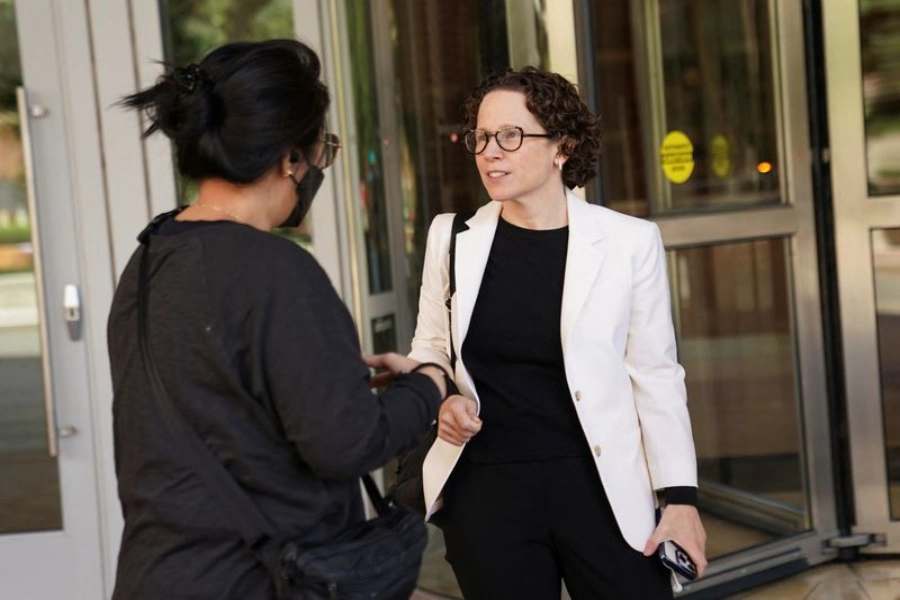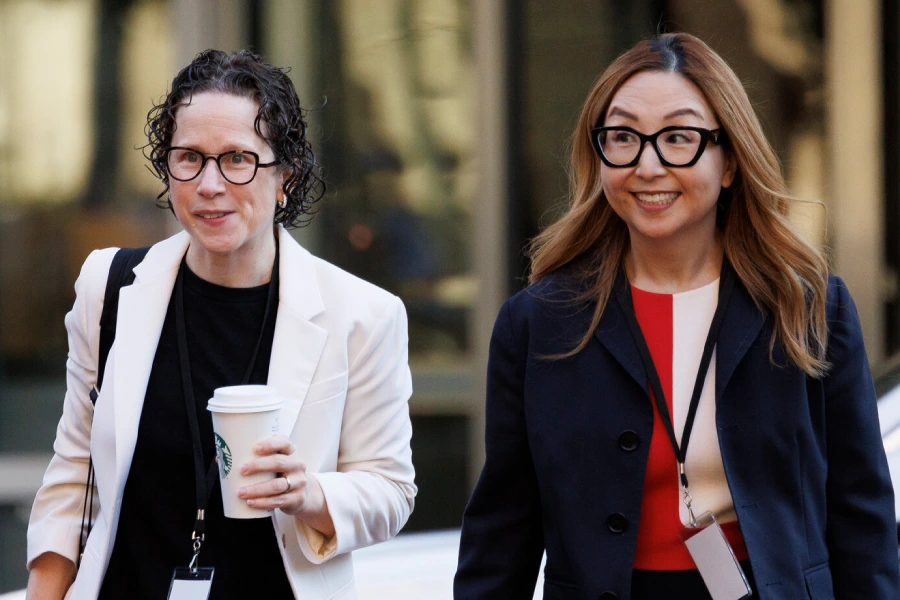Karen Dunn, a leading figure in American legal and political arenas, has recently made headlines by leaving the prestigious law firm Paul Weiss, a move that has sent ripples through the legal community. Alongside three other top-tier attorneys—Jeannie Rhee, Bill Isaacson, and Jessica Phillips—Dunn’s departure raises important questions about legal ethics, political pressure on law firms, and the autonomy of legal practice in the U.S. This article provides a comprehensive legal analysis of her exit, contextualizing it within current American political-legal dynamics.

Who is Karen Dunn?
Karen Dunn stands out as a highly respected lawyer and political strategist. She served as a White House attorney during the Obama administration and gained national prominence representing major tech companies such as Apple and Uber. Additionally, she has been a trusted advisor and debate coach for prominent Democratic figures, including Hillary Clinton and Kamala Harris. Dunn’s career blends deep legal expertise with political insight, making her one of the most influential legal minds in Washington and Silicon Valley.
What Led to Karen Dunn’s Departure from Paul Weiss?
In May 2025, Dunn, along with partners Jeannie Rhee, Bill Isaacson, and Jessica Phillips, announced their resignation from Paul Weiss. The timing coincided with revelations that the firm had negotiated a deal with the Trump administration to avoid limitations posed by an executive order. This agreement allegedly threatened the firm’s traditional client base and operational freedom.
This situation put a spotlight on the ethical dilemma facing top law firms when negotiating privately with political powers. Dunn’s exit is widely interpreted as a protest against what she and others viewed as a compromise of professional ethics and independence.
Legal and Ethical Analysis
The American Bar Association’s Model Rules of Professional Conduct provide the ethical framework governing lawyers’ conduct. Key rules implicated here include:
-
Rule 1.7 (Conflict of Interest): Lawyers must avoid conflicts that could impair their duty of loyalty and impartiality to clients.
-
Rule 5.1 (Responsibilities of Partners): Partners have a responsibility to ensure the firm’s compliance with ethical standards.
Dunn’s departure suggests she perceived a violation of these principles, particularly concerning the firm’s secret negotiations with a political executive branch, which might undermine public trust and client interests.

Key Questions Raised:
-
Should law firms disclose political agreements that affect their operations and client relationships?
-
What responsibilities do partners have if firm decisions conflict with their ethical standards?
-
How does political involvement risk compromising the integrity of legal advice?
Legal scholars argue Dunn’s move highlights the growing expectation that elite attorneys must not only secure legal outcomes but uphold principled transparency and ethical leadership.
Impacts on the U.S. Legal Profession
Karen Dunn’s exit could signal a broader shift in how law firms navigate political influence:
-
Value-Driven Legal Practice: Lawyers increasingly seek to align their professional work with personal and ethical values.
-
Stricter Ethical Oversight: This episode may prompt more stringent monitoring of law firm conduct during politically sensitive matters.
-
Client Reassessments: Major corporate and public sector clients may reconsider relationships with firms perceived as politically entangled.
Moreover, Dunn’s decision to start a new firm focused on high-stakes litigation and public interest work might set new ethical benchmarks in an era of political polarization.

Broader Historical and Political Context
This development fits into larger trends in U.S. law:
-
Political Polarization: The legal sector faces heightened scrutiny over partisanship and political influence.
-
Executive Overreach Challenges: Many law firms and public interest groups continue to resist controversial executive orders.
-
Public Trust Concerns: Perceptions of political bias in legal representation can erode faith in the justice system.
Karen Dunn’s Legacy and Future Prospects
Karen Dunn has a track record of principled legal work, including high-profile prosecutions and advocacy against gender discrimination. Her departure from Paul Weiss adds to her legacy as a lawyer who prioritizes ethical standards above political or financial gain.
Her new firm is anticipated to champion transparency, independence, and vigorous legal advocacy, potentially influencing how law firms across the U.S. approach political dealings.
Conclusion
Karen Dunn’s departure from Paul Weiss marks a significant moment in American legal ethics. It underscores the urgent need for transparency and principled leadership in the legal profession amid increasing political pressures. As the intersection of law and politics becomes more complex, Dunn’s career serves as a compelling example of ethical courage and professional integrity.
FAQ
Q1: Who is Karen Dunn?
Karen Dunn is a renowned American attorney and political strategist with experience representing tech giants and advising Democratic leaders.
Q2: Why did Karen Dunn leave Paul Weiss?
She left due to ethical concerns after the firm negotiated a political deal with the Trump administration.
Q3: What are the legal implications of her departure?
Her exit highlights conflicts of interest, the role of political influence in legal firms, and calls for greater transparency.
Q4: Is Karen Dunn forming a new law firm?
Yes, with three other partners, she is launching a firm focused on litigation and public interest law.
Q5: How does this relate to legal ethics?
It raises important questions about the responsibility of lawyers to maintain independence from political pressures.

